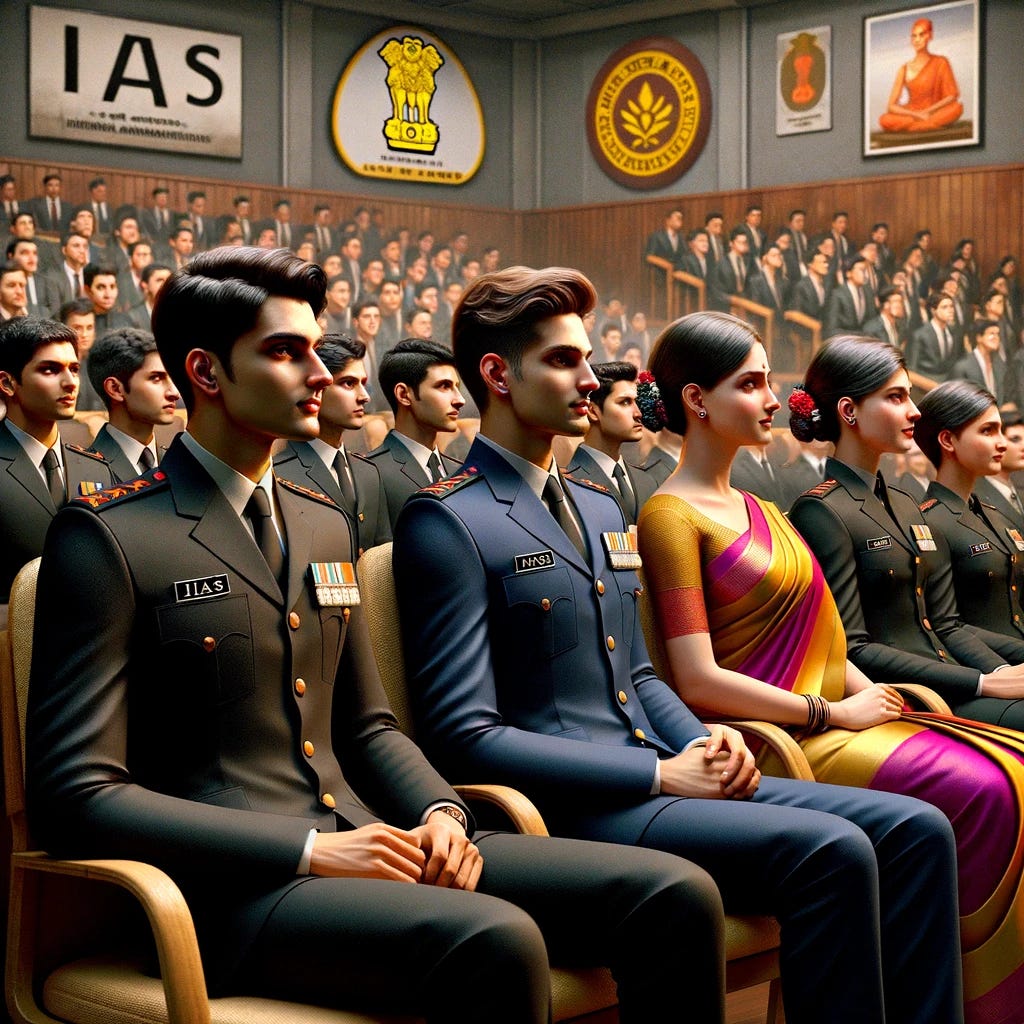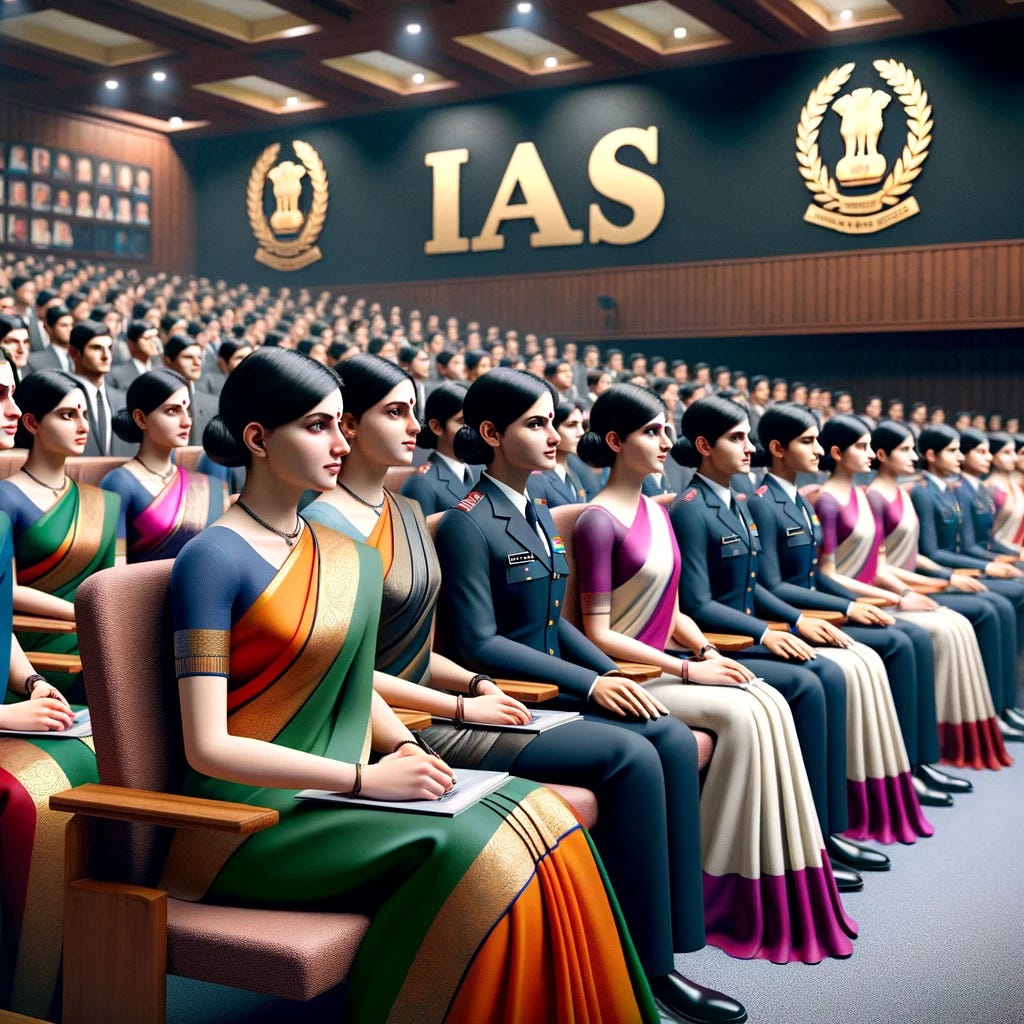Is the IAS 'chiranjeevi'?
IAS is here to stay because it suits the political executive.
It is not lateral recruitment but ‘back-door entry’ of retired ‘babus’ that can cause damage to the IAS.
Introduction: Is IAS “chiranjeevi”?
As a Punjab cadre officer, I originally published this piece in a leading e-portal in June 2018. Now, nearly six years later, I am revisiting this article to share it once again with our readers. I invite them to judge whether my hypothesis has been confirmed or, at the very least, reaffirmed in material particulars. The articles continues below.
The Spectre of “Lateral Entry”
The Government’s recent notification on ‘lateral recruitment’ at the level of the joint secretary has triggered a lively debate in the bureaucratic, media, political as well as academic circles over the “bold” new initiative. It has been variously viewed as a paradigm shift in “bureaucratic reforms” or a low-key introduction of the “system of spoils”, leading some to prophecise that this could be the beginning of the end of the Indian Administrative Service (IAS).
That the induction of merely 10 joint secretaries in a few key ministries at the Centre — that too on contractual basis for 3–5 years — would create such a storm in a tea-cup was perhaps not anticipated by many.
Apprehensions have been expressed that persons with known ideological preferences may be recruited by keeping the Union Public Service Commission (UPSC) out of the loop and thus creating an elite “blue-eyed” cadre of a “committed bureaucracy”, loyal to the government of the day rather than the Constitution of India — a kind of disguised “privatisation the IAS”.
Our hypothesis here is that the existing system suits the political executive, both at the national level as well as in the states. In absence of this, the IAS would have been consigned to the archives, notwithstanding Article 310 of the Constitution and the impassioned speeches of Sardar Patel to the Constituent Assembly.
A human resource pool
The IAS provides a multi-disciplinary and inter-disciplinary human resource pool, which is not only able to appreciate the political imperatives but also carries significant institutional memory of its own. The so-called esprit de corps of the service helps sort out the inter-departmental issues in an environment where the governmental structures tend to work in silos.
More importantly, the officers are available from the very day the new government assumes office. Even if one were to have a system where a brand new set of civil servants would serve for a tenure co-terminus with the government, Articles 14 and 16 of the Constitution would prevent the selection from being arbitrary.
A safety net
A permanent and “experienced” civil service also provides a kind of safety net, should the decisions of the top political executive be questioned later on. The political masters can always argue that they merely went by the advice of the “experts”, and in the process not only save themselves from responsibility, accountability and culpability but also push the same down the line.
Recent high-profile cases relating to the 2G spectrum, coal block allocation and FIPB scams have revealed that even the courts tend to be more lenient towards political personalities as long as they are able to demonstrate that they merely acted on the well-considered and documented advice of the senior civil servants.
Long-term accountability
A permanent civil servant provides both to the system and the political executive a long-term accountability, the onus of which lies squarely on the civil servant. It is not uncommon that cases that are decades old can be fished out and proceedings, both criminal and departmental, are initiated against the career civil servants. No such arrangement can be put in place qua short-term contractually hired “managers/ experts”. A career civil servant can be “punished” in numerous ways, formal as well as informal, since he is here to stay for long-term.
Goodwill helps
A permanent civil service also provides a fertile ground for the political executive to nurture young IAS officers of the respective state cadre, who have a long innings ahead.
The goodwill generated by the first-generation politician can be reaped by the second-generation scions of the political family. Such relationships can also come in handy when the political personality is out of power. The civil servants would also tend to be accommodating, knowing well that those out in the cold today may come to power in the next elections.
Back-door entry threat
One cannot assert that the IAS system of governance is the best, but the thrust of the argument is that the IAS has survived because it has been and remains eminently suitable to the political executive, which is our initial hypothesis.
The IAS is here to stay and no privatisation, the term used for “lateral entry”, can cause it any serious damage. What may perhaps cause more harm to the IAS is the “back-door entry” of retired “babus”, who may usurp senior IAS cadre posts, which eluded them while in the service in a seniority-cum-merit scenario.
The other assault could come from unwarranted extensions to serving IAS officers occupying top positions that would unjustly deprive their junior colleagues of those coveted posts at the culmination of their respective careers.
The ‘steel frame’ may be under stress, but it is far from collapsing.







The so-called steel frame has not only rusted but also seems to be beyond repairs. The time has arrived for the ‘least governance’ .